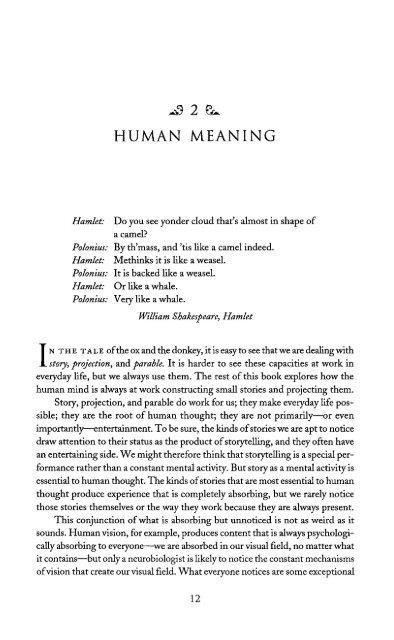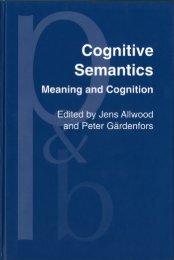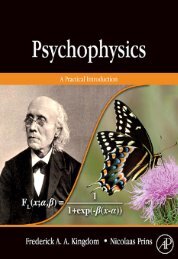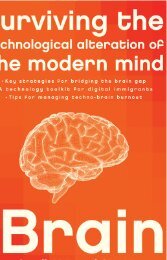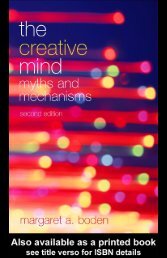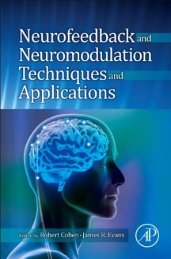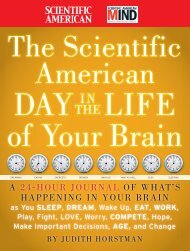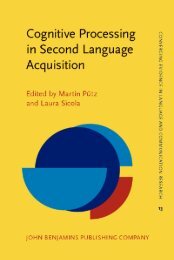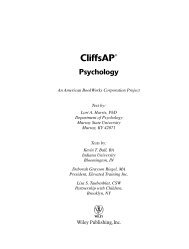The Literary Mind.pdf
The Literary Mind.pdf
The Literary Mind.pdf
You also want an ePaper? Increase the reach of your titles
YUMPU automatically turns print PDFs into web optimized ePapers that Google loves.
2<br />
HUMAN MEANING<br />
Hamlet: Do you see yonder cloud that's almost in shape of<br />
a camel?<br />
Po/onius: By th'mass, and 'tis like a camel indeed.<br />
Hamlet: Methinks it is like a weasel.<br />
Po/onius: It is backed like a weasel.<br />
Hamlet: Or like a whale.<br />
Polonius: Very like a whale.<br />
William Shakespeare, Hamlet<br />
IN THE TALE of the ox and the donkey, it is easy to see that we are dealing with<br />
story, projection, and parable. It is harder to see these capacities at work in<br />
everyday life, but we always use them. <strong>The</strong> rest of this book explores how the<br />
human mind is always at work constructing small stories and projecting them.<br />
Story, projection, and parable do work for us; they make everyday life possible;<br />
they are the root of human thought; they are not primarily—or even<br />
importantly—entertainment. To be sure, the kinds of stories we are apt to notice<br />
draw attention to their status as the product of storytelling, and they often have<br />
an entertaining side. We might therefore think that storytelling is a special performance<br />
rather than a constant mental activity. But story as a mental activity is<br />
essential to human thought. <strong>The</strong> kinds of stories that are most essential to human<br />
thought produce experience that is completely absorbing, but we rarely notice<br />
those stories themselves or the way they work because they are always present.<br />
This conjunction of what is absorbing but unnoticed is not as weird as it<br />
sounds. Human vision, for example, produces content that is always psychologicaEy<br />
absorbing to everyone—we are absorbed in our visual field, no matter what<br />
it contains—but only a neurobiologist is likely to notice the constant mechanisms<br />
of vision that create our visual field. What everyone notices are some exceptional<br />
12


